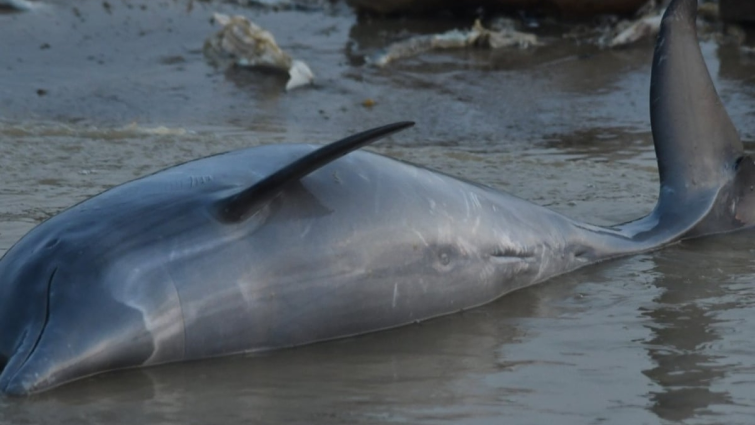No fewer than 100 dolphins have been confirmed dead in the Brazilian Amazon rainforest in the past week as the region grapples with a severe drought, and many more could die soon if water temperatures remain high.
The Mamiraua Institute, a research group of Brazil’s Ministry of Science, Technology and Innovation, said two more dead dolphins were found Monday in the region around Tefe Lake, which is key for mammals and fish in the area. Video provided by the institute showed vultures picking at the dolphin carcasses beached on the lakeside. Thousands of fish have also died, local media reported.
The most likely reason for the mortality in the area’s lakes, according to experts, is the high water temperatures. In the Tefe Lake area, temperatures have surpassed 39 degrees Celsius (102 degrees Fahrenheit) since last week.
The Chico Mendes Institute for Biodiversity protected, which oversees protected zones for the Brazilian government, announced last week that teams of veterinarians and specialists in aquatic mammals had been sent to look into the fatalities.
“We have already lost about 120 animals between the two of them in one week,” said Marmontel. This loss might account for 5% to 10% of the population.
Read Also: Suspected Jihadists Kill 29 Niger Soldiers – Defence Ministry
Workers have recovered carcasses of dolphins since last week in a region where dry rivers have impacted impoverished riverside communities and stuck their boats in the sand. Amazonas Gov. Wilson Lima on Friday declared a state of emergency due to the drought.
Nicson Marreira, mayor of Tefe, a city of 60,000 residents. said his government was unable to deliver food directly to some isolated communities because the rivers are dry.
Ayan Fleischmann, the Geospatial coordinator at the Mamirauá Institute, said the drought has had a major impact on the riverside communities in the Amazon region.
“Many communities are becoming isolated, without access to good quality water, without access to the river, which is their main means of transportation,” he said.
Fleischmann said water temperatures rose from 32 C (89 F) on Friday to almost 38 C (100 F) on Sunday.
He said they are still determining the cause of the dolphin deaths but that the high temperature remains the main candidate.

